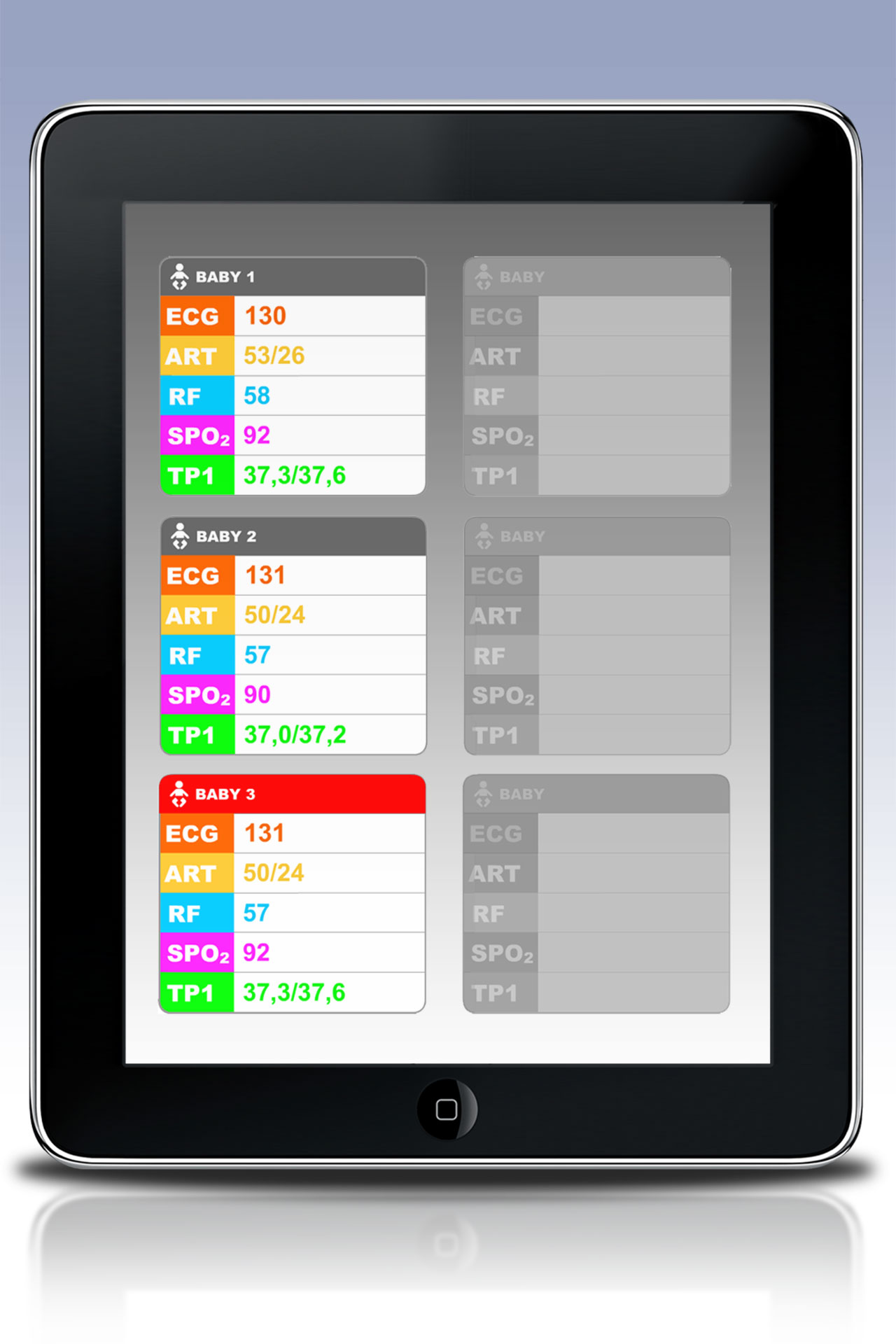Project team: Lilia Pérez Romero, Liang Hiah and Ivor Grisel
Preterm or premature babies are infants born before week 37 of gestation. They usually require constant monitoring of their biophysical functions and special care to make up for the lack of maturity and self-sufficiency of their organs. Babies under these circumstances are provided with around the clock attention in order to aid them recover or start growing. They are taken care for and kept in the Neonatal Intensive Care Units (NICU)
The intention of this project was to analyze the working environment in the Neonatal Intensive Care Units (NICU) where the incubators are kept and to assess some of the aspects that could be improved from the point of view of cognitive psychology and human factors.
The main problem detected was the excess of auditory alarms present in the NICU, and the lack of standardization resulting from the use of different kinds and brands of equipment, not attuned to each other.
The second conflicting issue located is the amount of vital signs information from the patients. Each patient has a number of vital signs measurements, which the nurse has to keep track of to make sure no problems occur. The information can be found on monitors, which are located at each patient’s terminal. The nurse will have to look at the different monitors to be able to see the vital signs. This means that the nurse will have to divide her attention between the screens and possibly other tasks that she is performing, increasing the workload.
In order to address these two points, we developed BabyPad. BabyPad is a tablet PC. It will be complemented with scrubs with wide pockets to carry the tablet and an associated frame to place the tablet in. The design choices made for BabyPad are based on (the improvement of) cognitive factors. The BabyPad system consists of a physical part (the tablet and associated scrubs and frame) and a multimodal interface.
BabyPad wirelessly combines of all of the vital sign measurements at a single location. This results in the nurse having to divide her attention over a smaller number of information sources, freeing up attentive resources, eliminating the need to move in order to keep the monitors in sight, and providing her with concentrated relevant information within her visual field of focus. The BabyPad system will be able to keep the nurses up to date even when they are in different rooms, increasing their situational awareness. The alarms will also be remotely monitored with BabyPad. The reduction in alarms should also have a positive effect on the development of the patients.
The interface development of the BabyPad adheres to standard design principles, for example the Gestalt principles and mapping the different elements in accord to the mental models of the nurses.
One of the strongest points of the system is that it does not take away the control of the user, something that is highly regarded in the medical profession. The system should be considered to be a tool for the nurses to use to improve their work.
